This year marks the 105th anniversary of the birth of a prominent linguist, literary critic, founder of the Abkhaz literary criticism, laureate of the Gulia State Prize, doctor of philological sciences Khukhut Bgazhba.
Arifa Kapba
The famous Abkhaz linguist Khukhut Bgazhba was born on October 15, 1914 in the village of Gup, Ochamchira district (at that time - Kodor district - ed.) in the family of a fairly well-known person in Abzhuy Abkhazia (Eastern part of Abkhazia - ed.) Saluman (Solomon) Bgazhba and Matia Kapba. Interestingly, there is a heroic song about Saluman that the people composed after Khuhut’s father avenged the murder of his older brother. This folklore and history itself have survived to the present day.
National hero Saluman Bgazhba
These events took place at the turn of the century in the picturesque village of Tkuarchal, or rather, in the foothills of Achampazra. Together with his three sons Ekup, Kyaskinj and Saluman, a representative of the Bgazhba clan named Edgie lived there. The family enjoyed such respect among the people that even the local prince Shmaf Achba began to look unkindly at Edgie and his sons. Especially - at the elder Ekup, who often behaved proudly and impudently, did not want to bow his head to anyone, not even to the prince himself.
Ekup, however, was friends with the son of the prince, Astamyr Achba, from childhood. Both were tall and handsome men: wherever they appeared together, on horseback, all eyes were turned only to them. But once a terrible thing happened between friends.
Here is how the literary critic Ruslan Kapba describes this in the book “Khukhut Bgazhba”: “Once Astamyr and Ekup went together to Samurzakan (now the town of Gal - ed.) to visit friends. In those days, this kind of pastime - a trip for a few days to visit relatives, friends and acquaintances - was common among Abkhaz. On the way back, friends turned and dismounted at the house of Arshba Dyrveg (Dyruyeg). The host received the guests, as appropriate, fed and watered them, and in the evening they went home. They rode along a cornfield on a plain near the Aalydzga River and stopped, going up to the gate. Ekup was the first to ride, and Astamyr was following him. When Ekup bent to open the gate, Astamyr at that moment pulled out a gun (he had no doubt planned this beforehand), and, putting him at the back of Ekup's head, shot him twice. A man like a giant fell off the saddle, not having time to utter a word, and fell in front of the gate that he was just trying to open.”
Having committed his atrocity, Astamyr Achba hid in the house of a relative in the village of Chlou. And the body of Ekup Bgazhba was searched on the banks of the Aalydzga River for more than a month, and they found it near a tethered horse, sprinkled on top with a pile of leaves that had already been smoldered. This terrible event forced the Ekup’s brothers - Kaskindzh and Saluman to leave the house. After some time, Saluman's bullet reached Astamyr Achba: Saluman avenged the death of his brother. At that time he was only 21. Immediately there was a fuss - a man who dared to kill the prince should have been punished. Saluman hid in the woods for some time.
But in the eyes of the common people, he was a hero who achieved just revenge. Here is what is sung in that folk song about him:
In the morning his brother was killed,
At noon he avenged holy
Brave Bgazhba Saluman.
A bullet flying out of a muzzle
Would never blown away a tree
Son of the faithful peasants!
A fierce enemy, mighty in a duel,
Would not force to turn off the path
The son of a faithful peasant.
Retribution was terrible for the people:
He punished the princes for the death of his brother.
(translation by Semyon Lipkin)
The blood feud between the Bgazhba and Achba clans has since been very serious and has caused so many sad events that even now the son of Khukhut Bgazhba and the grandson of Saluman Oleg Bgazhba (a well-known Abkhaz archaeologist, historian, Caucasian scholar - ed.) does not like to remember and tell about it. According to Oleg Khukhutovich, grandfather wandered in the forests and mountains for a long time, then he was exiled to Siberia for hard labor, where he spent eight years. Then Saluman returned to his homeland, although it was forbidden to him, he settled in the village of Gup. From there he wrote a petition to Emperor Nicholas II himself, in which he asked his permission to stay in Abkhazia. This letter is still kept in the Bgazhba family as a family heirloom.
Thus began a peaceful life for the father of Khukhut, although even living in Gup and raising children, Saluman was always on the alert, fearing revenge on the part of the Achba clan.
“I remember that my father told me that he was seven years old when he brought [his] father (Saluman) a Berlin-Germany pistol, which he always had with him, even when he plowed in the field or did something about the housework,” recalls Oleg Bgazhba.
Native homes and the “pearl” town
In Gup, Saluman married a member of the Kapba clan named Matia. They had three sons. The eldest died in childhood, others were called Khukhut and Khakibey. Khukhut was seven years old when his father died. Matia returned with her children to her home in the village of Arasadzikh. There the question arose which school to send Khukhut to study: it turned out that five kilometers had to be walked to the Gup school every day. So Khukhut got into a family of his mother's cousin, Tatia, in Ochamchira.
The boy studied very well, thank God the teachers at the school were first-class, such as Foma Eshba and Dmitry Maan. Sometimes he missed his relatives, his mother, but, according to his own memories, Aunt Tatia was very kind to him.
He recalled: “Khukhut, sweetheart,” Aunt Tatia spoke to me so touchingly tenderly. “Studying and longing do not get along well together, you should know this, and then, since you can easily reach Arasadzikh, we can slip through whenever you want,” she consoled when she saw that homesickness engulfed me.
After the Ochamchira school, relatives decided to send the curious Khukhut to study at the Sukhum Mountain School. And he, along with Uncle Khuaney Kapba, went to Sukhum for the first time in his life, moreover, on a ship. This journey through the sea excited the young man’s heart, as well as the view of the town, which he called a “pearl” one.
The headmaster of the school, Kondrat Dzidzaria, received the uncle and his nephew. At the Mountain School, Khukhut Bgazhba immediately established himself well in all subjects, even in the Russian language, which was not easy for children from the villages.
“Getting top grades from such a strict teacher as V.P. Dankevich, a teacher of Russian language and literature, meant a lot, because he was incredibly stingy with grades,” writes Ruslan Kapba. By the way, the same Dankevich later taught the Russian language and literature at this school to his son, Oleg Bgazhba.
After leaving school, Khukhut Bgazhba entered the historical and philosophical faculty of the Moscow Pedagogical Institute, which he graduated in 1937 and returned to Abkhazia as a young writer, who had already written many literary essays and articles by that time.
A scholar, who raised Abkhaz personnel
In Sukhum, at the time of the return of Khukhut Solomonovich, a terrible, oppressive atmosphere reigned. This was the year of the destruction of the Abkhaz intelligentsia, many prominent public figures were repressed. In 1941, young Khukhut, who was looking for housing in Sukhum, was handed a warrant from the apartment of Samson Chanba, who once helped him in every possible way during his studies, but at that time he was already repressed. Bgazhba refused the apartment - his conscience did not allow him to move into the empty apartment of Chanba, but it was already dangerous to abandon the post of Secretary of the Union of Writers of Abkhazia. And he took this post. It is worth noting that Khukhut Bgazhba was also a member of the Soviet Union of Writers and had a certificate signed personally by the writer Maxim Gorky.
In 1942, a young scientist got a job at the Abkhaz Institute of Language, Literature and History, studied linguistics, and with great passion studied the subtleties of the Abkhaz language. He also wrote critical articles on literature.
At the Abkhaz Institute, he later headed the department of language and literature, from 1943 to 1953 he worked as deputy director for science, and from 1953 to 1966 he headed the institute. At a time when everything Abkhaz was forbidden and the cultivation of national personnel was not welcomed, Khukhut Solomonovich and his deputy Akibey Khonelia did everything in their power so that young talented representatives of science could study at the best universities of the Soviet Union and enter postgraduate programs. Many of those promising students today are the luminaries of Abkhaz science.
“When Khukhut Bgazhba served as director of the Abkhaz Institute, all his strength, capabilities, knowledge and experience were aimed at ensuring that the institution entrusted to him fully corresponded to his high appointment. When the Abkhaz regional party committee dismissed him from the post of director, the scientist turned 52 years old. He was in his prime. Khukhut was charged with his book “Bzyb dialect of the Abkhaz language”. People far from science in every way inclined this book, antagonized others, who did not read it, and sic them on the author, accusing him of treason,” writes Ruslan Kapba.
First literary critic
The most important work of Khukhut Bgazhba is “A brief outline of contemporary Abkhaz literature”. The scholar wrote monographs on the life and work of many prominent figures of Abkhaz literature - Dmitry Gulia, Iua Kogonia, Mikha Lakrba, Bagrat Shinkuba and others. Thus, Khukhut Bgazhba is considered the founder of the genre of literary criticism in Abkhazia.
In addition to fiction, Bgazhba studied folklore, the problems of linguistics. Khukhut Bgazhba participated in the creation of such fundamental works as the “Russian-Abkhaz Dictionary”, “Essays on the History of Abkhaz literature”, and “Grammar of the Abkhaz language”. “Phonetics and morphology”, “History of Abkhaz literature” and many others.
Khukhut Solomonovich was also involved in the preparation of school textbooks on Abkhaz language, and anthology on Abkhaz literature.
Bgazhba defended his doctoral thesis in 1969 on the “Phonetic-morphological and lexical features of the Bzyb dialect of the Abkhaz language.”
“He was absent-minded, as is characteristic of scholars”
Khukhut Bgazhba was married to the daughter of the famous Abkhaz statesman Andrey Chochua, Tatyana. His wife was a botanist, Ph.D., worked in the Botanical Garden.
Together with Khukhut Solomonovich they raised a son, Oleg Bgazhba. Although most often Oleg was with his grandfather and grandmother on his mother's side, in the house of Chochua, where his cousin Zhanna Chochua was also raised.
“My father was strict, but he never raised his hand against me, there was enough of a word, - recalls Oleg Bgazhba. - He was completely absorbed in science, did not notice anyone around. He was so absent-minded, as is characteristic of scholars. Once he promised to buy a [New Year's] tree, and he forgot everything. We ourselves bought it, put it in the house. When he arrived, he sat down in a chair and did not even notice that there was a tree nearby, until we dew his attention to it.”
Khukhut Bgazhba himself travelled quite often at various symposia and conferences, and also met famous guests in Abkhazia: the French writer Andre Gide, the English writer John Boynton Priestley, the Russian poet Vasily Kamensky and other famous people.
Khukhut Solomonovich passed away on December 23, 2000, he was eighty-six. His name is extremely significant for everyone who studies Abkhaz literature and language. In his books, articles and essays one can find many answers to the most interesting puzzles of the Abkhaz language and literature, his works are textbooks for modern philologists and literary scholars.
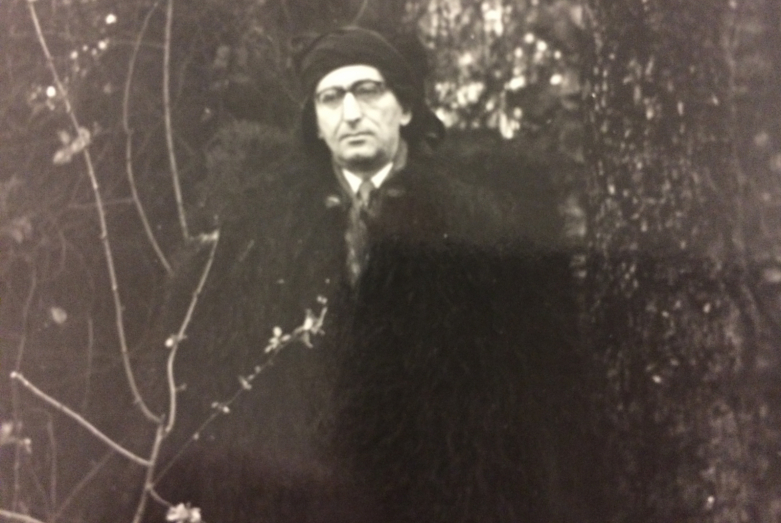
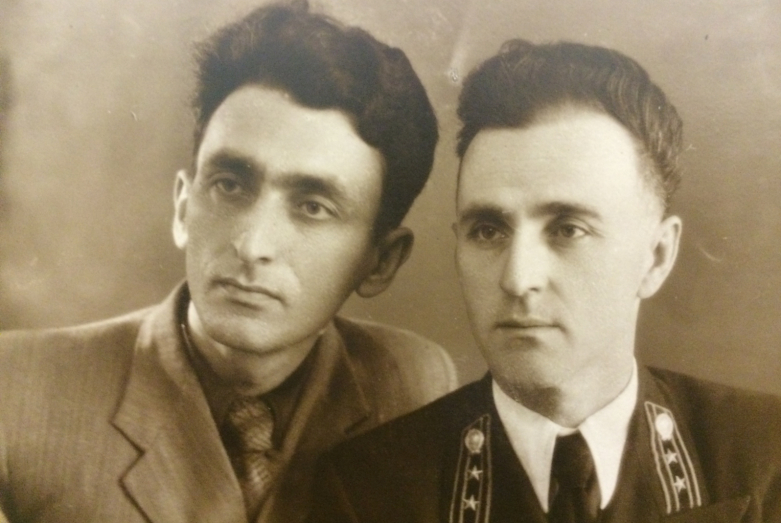
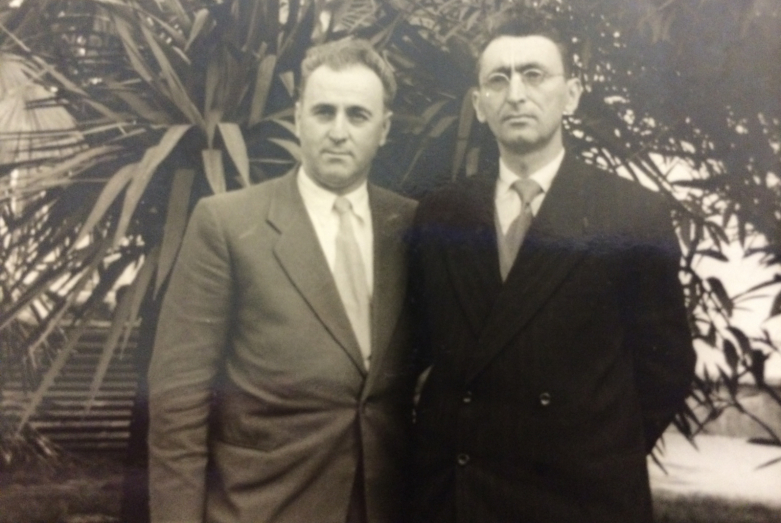
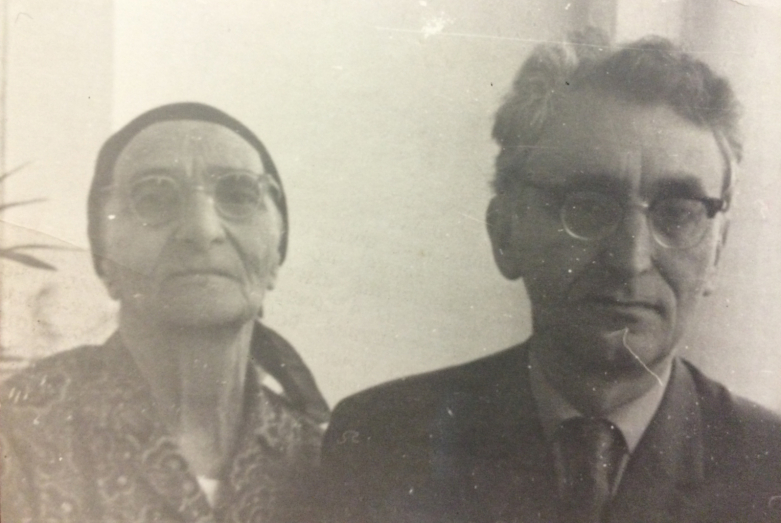
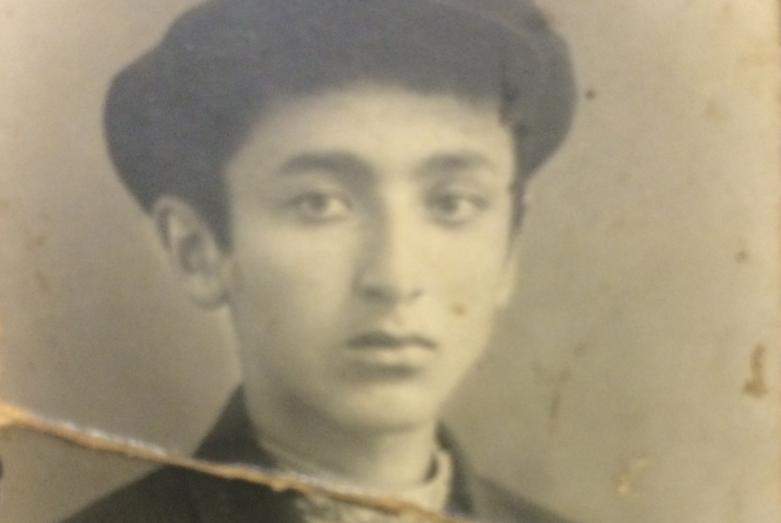
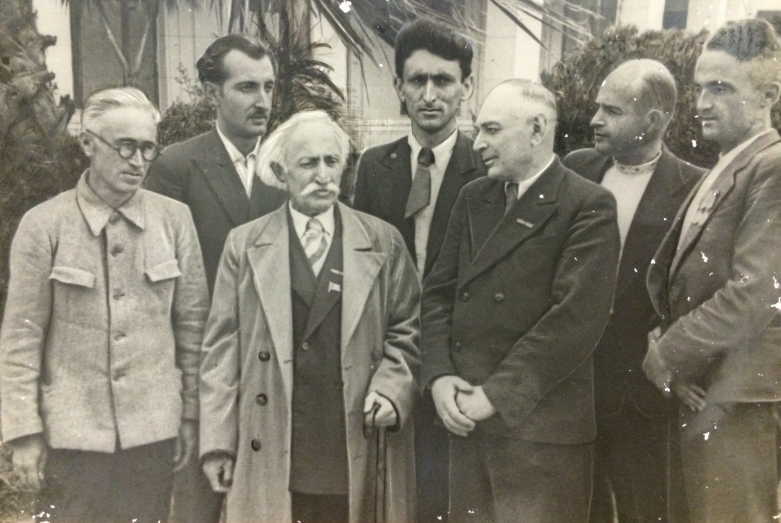
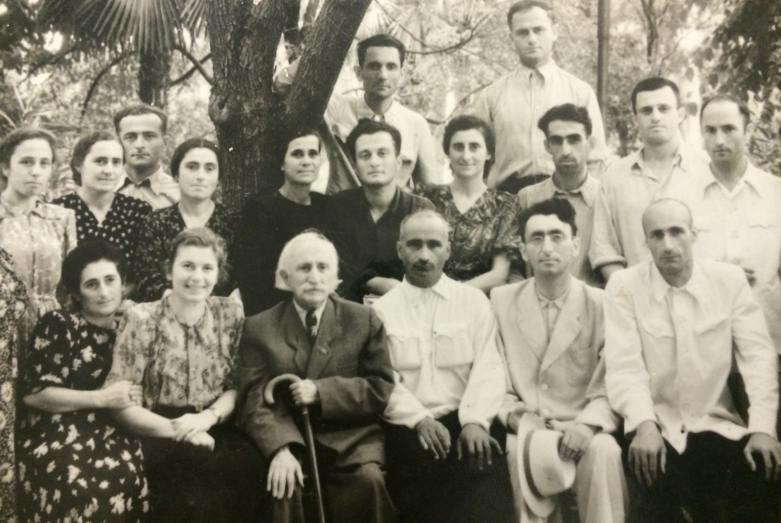
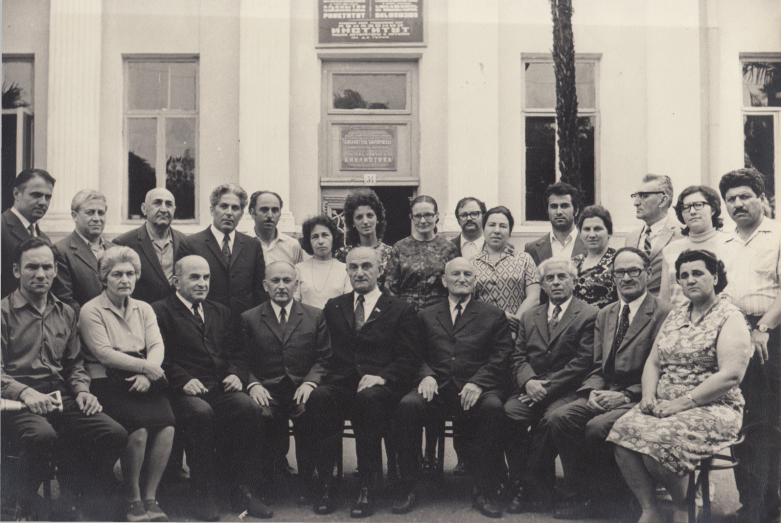
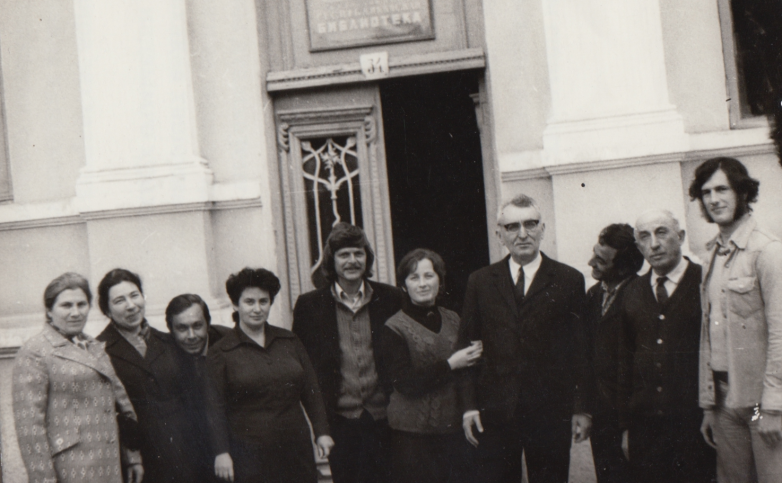
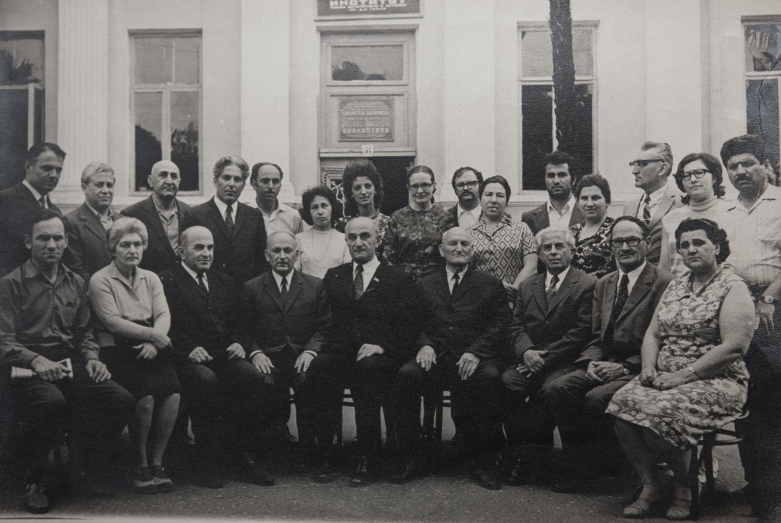
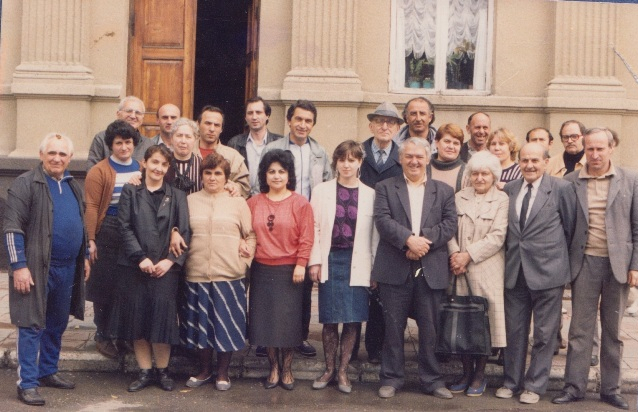
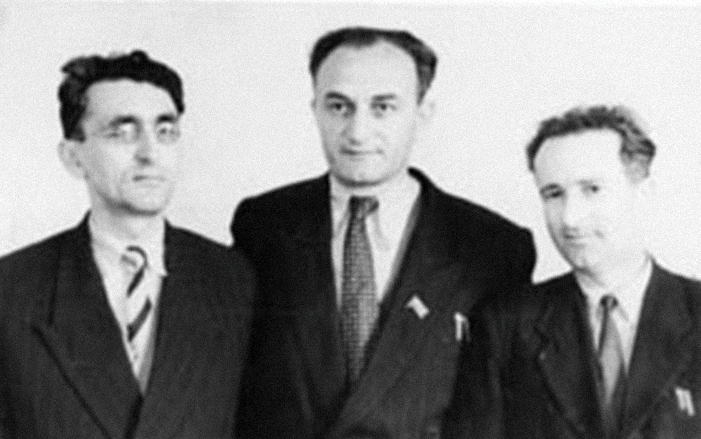
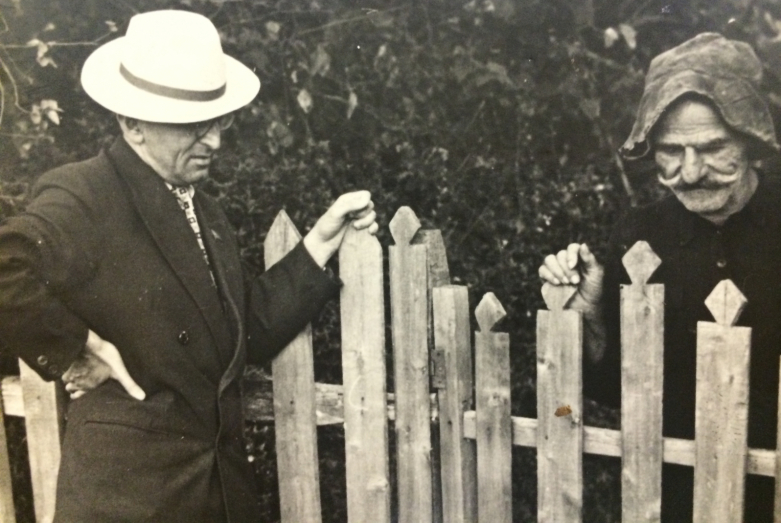
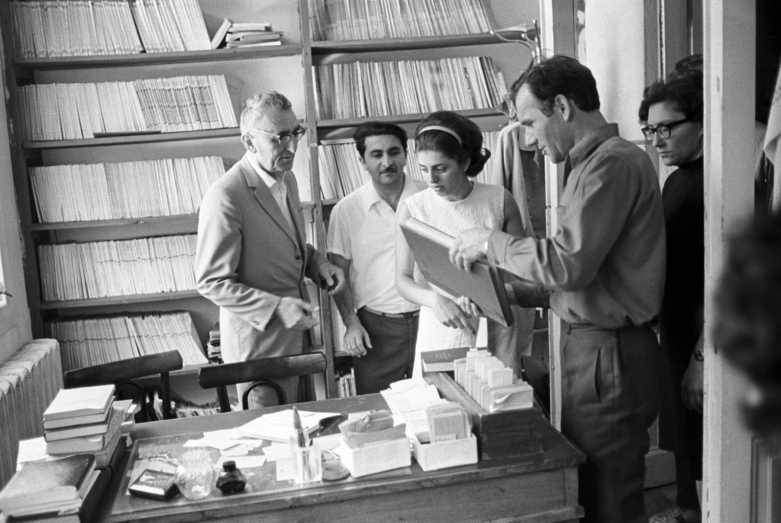
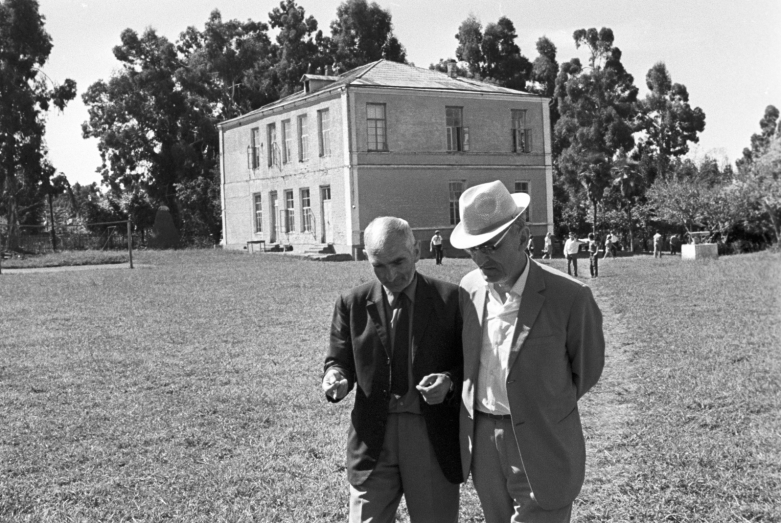
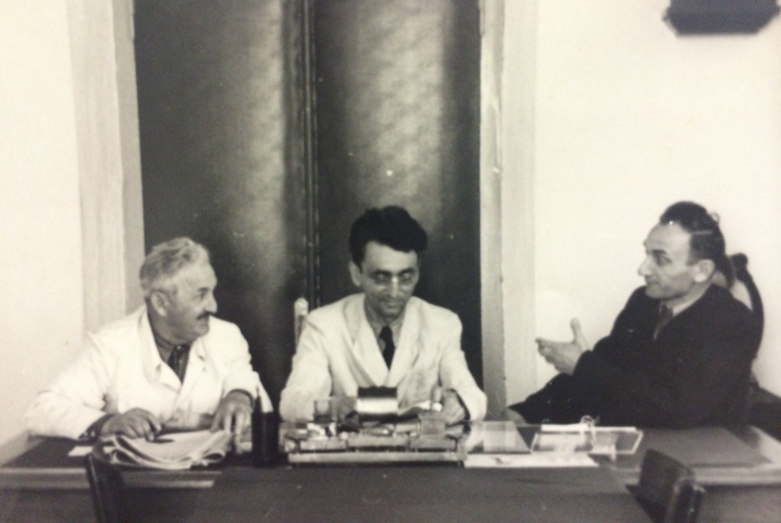
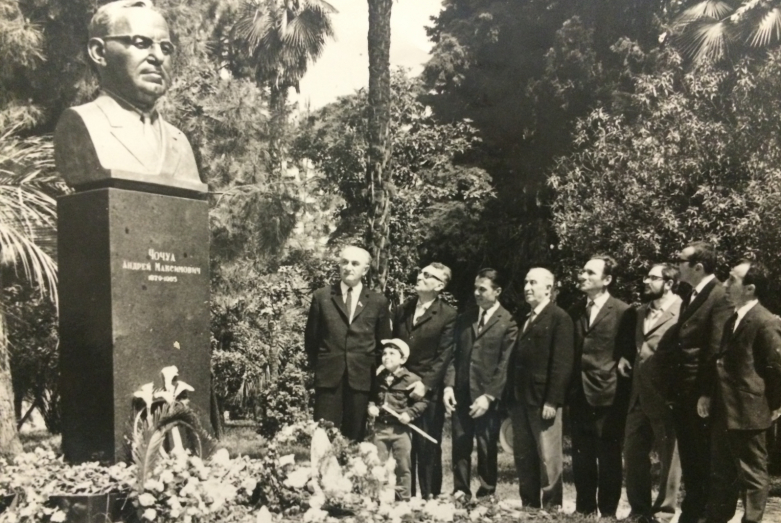
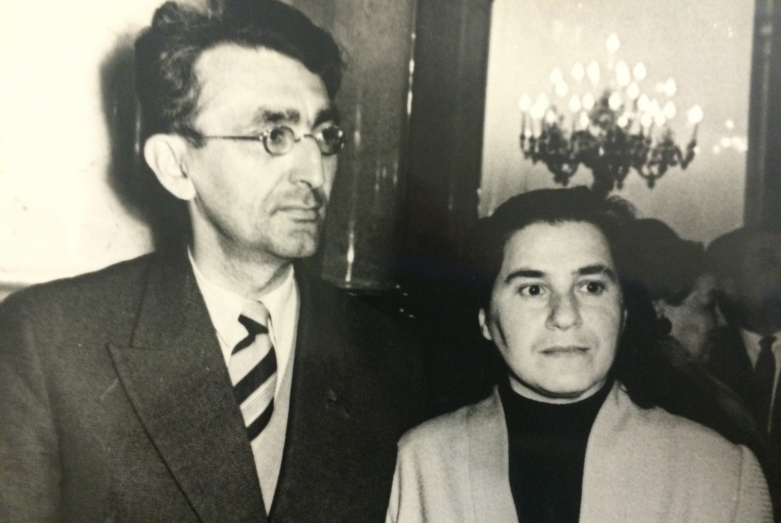
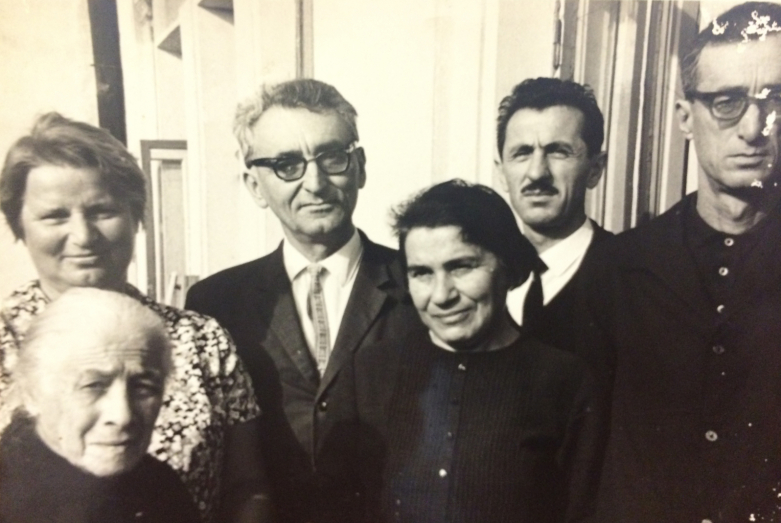
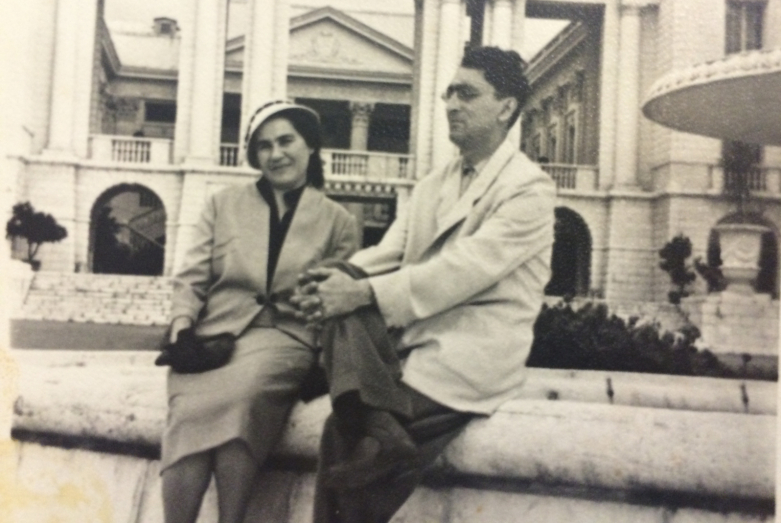
to login or register.